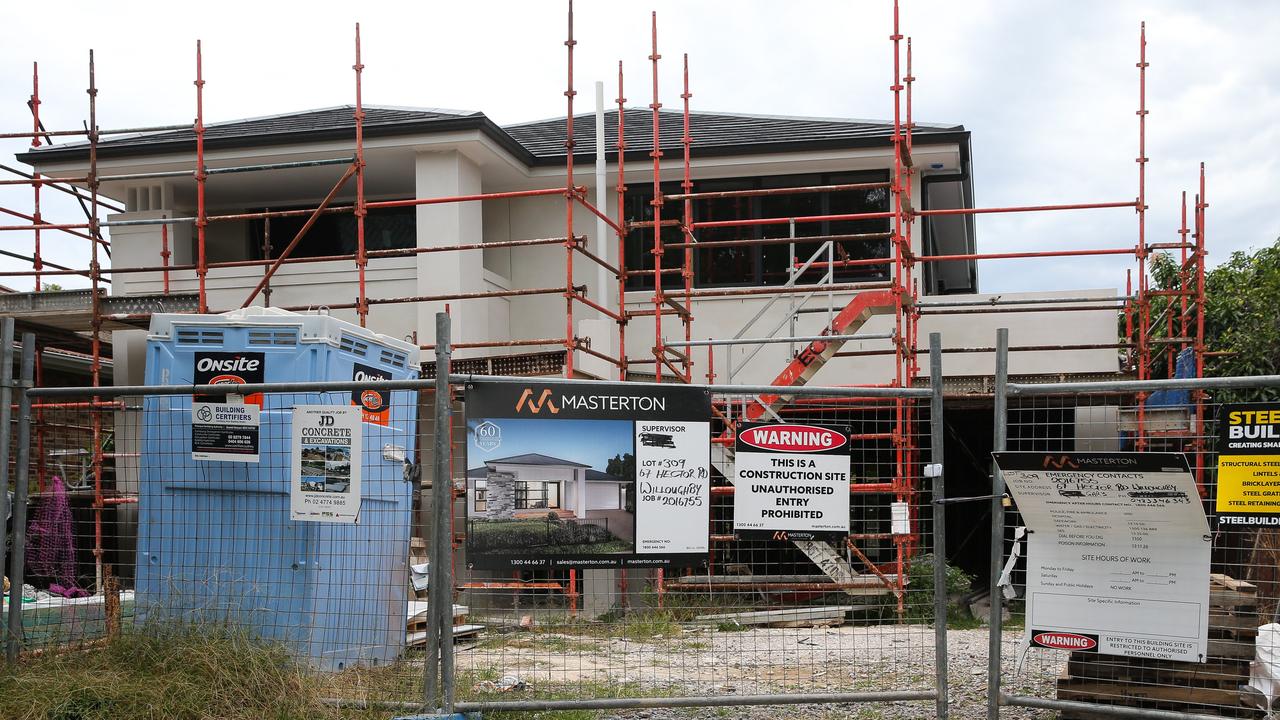RBA boss in interest rates warning
RESERVE Bank governor Glenn Stevens has raised the prospect of further interest rate rises, warning that the commodities boom and excessive wage claims threaten to derail the bank's effort to control inflation.
RBA boss in rates warning
RESERVE Bank governor Glenn Stevens has raised the prospect of further interest rate rises, warning that the commodities boom and excessive wage claims threaten to derail the bank's effort to control inflation.
The Reserve Bank board opted to keep the official cash rate steady at a 12-year high of 7.25 per cent following its monthly meeting yesterday, but new figures on wage settlements to be released next Wednesday -- the day after the Federal Budget -- could push the official rate to 7.5 per cent as early as next month.
Mr Stevens said the bank expected inflation would remain high but would decline gradually as the economy slowed.
"Should demand not slow as expected, or should expectations of high ongoing inflation begin to affect wage and price settings, that outlook would need to be reviewed," he said.
Wayne Swan said the Reserve Bank's decision to keep rates on hold for another month was a "welcome relief".
"It reinforces the need to find savings in the budget to build a strong surplus, to put downward pressure on prices and inflation, and ultimately, to put downward pressure on interest rates," the Treasurer said.
The minutes of the last Reserve Bank meeting displayed no concern about wages, but the board has been rattled by the acceleration of inflation to 4.2 per cent in the March quarter, and by reports yesterday of the 15 per cent pay rise for Victorian teachers.
ABN Amro senior economist Felicity Emmett said that although there was supposed to be a productivity payoff in the teachers' agreement, financial markets were concerned it set a benchmark for other pay deals.
In unionised industries such as manufacturing, construction and transport, many enterprise agreements were struck in 2005, to take effect before the Howard government's Work Choices laws began. Those agreements expire over the next six to 12 months, raising concern of a union wages push.
Australian Chamber of Commerce and Industry chief executive Peter Anderson said: "The Reserve Bank statement is very direct and most timely, as there are risks associated with the upcoming enterprise bargaining claims."
ACTU secretary Jeff Lawrence blamed business for rising inflation. "Business is financing the current record level of profits and excessive executive salaries through price rises that are hitting consumers," he said. "This is what is pushing up inflation, not the wages of average working Australians."
Mr Lawrence said the latest enterprise bargaining figures showed lower pay rises for employees, and said more than a million workers on minimum wages had gone backwards over the past three years.
"With prices rising so strongly, it is essential that working Australians maintain their living standards and that the burden of fighting inflation not fall on those who can least afford it," he said.
Mr Swan declined to comment on the Victorian teachers' pay agreement, but said settlements should be based on productivity.
The Reserve Bank has been pleased by evidence over the past month that the economy is slowing, including slower growth in consumer borrowing and falling consumer and business confidence. However, the bank board is worried by the soaring prices for coal and iron ore, which are expected to pump more than $40 billion into the economy over the coming year.
Mr Stevens said this would counter the bank's efforts to slow demand. "It will add substantially to national income and ability to spend, even with the slowing in global growth," he said.
The bank would be hoping that the Government kept its promise to bank any windfall tax revenue from the commodities boom, rather than return it in additional tax cuts.
ANZ senior treasury economist Warren Hogan said: "The Reserve Bank is saying it will not be patient for very long. If they get any sign that high inflation expectations are influencing wage-setting outcomes, or that the economy starts to stabilise and domestic demand stops slowing, then they will need to raise rates again."
Mr Hogan said that although the Reserve Bank had been helped in recent months by the additional interest rate rises delivered by the private banks, the global financial crisis appeared to be easing.
Bank funding costs had been rising for the past three months but had dropped in the past three weeks. Several major Australian companies, including Wesfarmers and Westfield, have been able to issue bonds on international markets for the first time since the financial crisis struck last August.
Trade figures released yesterday show the economy is still running a large monthly deficit, with the $2.7 billion shortfall in exports in March the third-biggest on record.
However, resource exports are beginning to lift, with coal exports up by 23 per cent from February, when floods closed rail lines, while iron ore exports jumped by 16 per cent.



